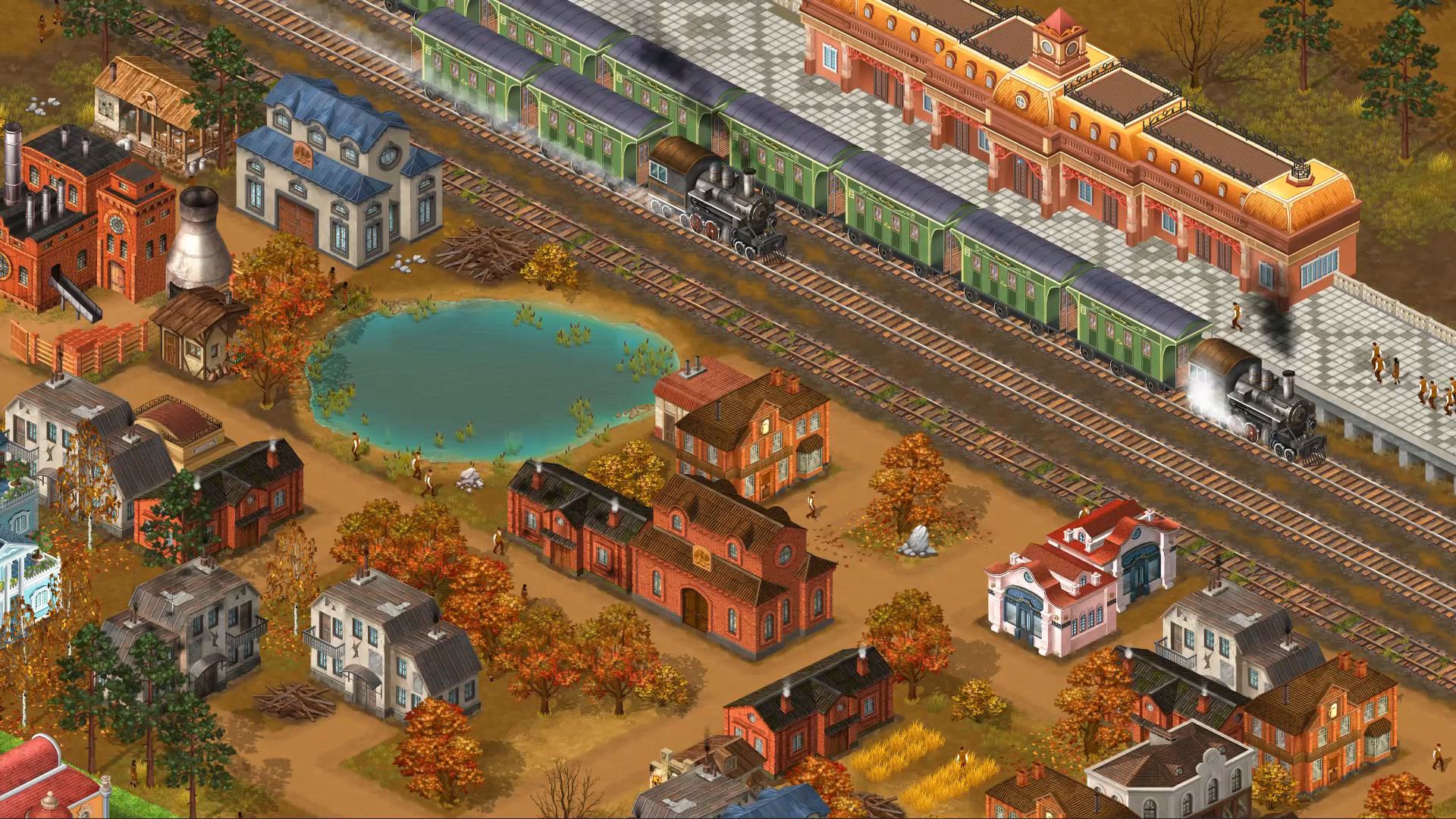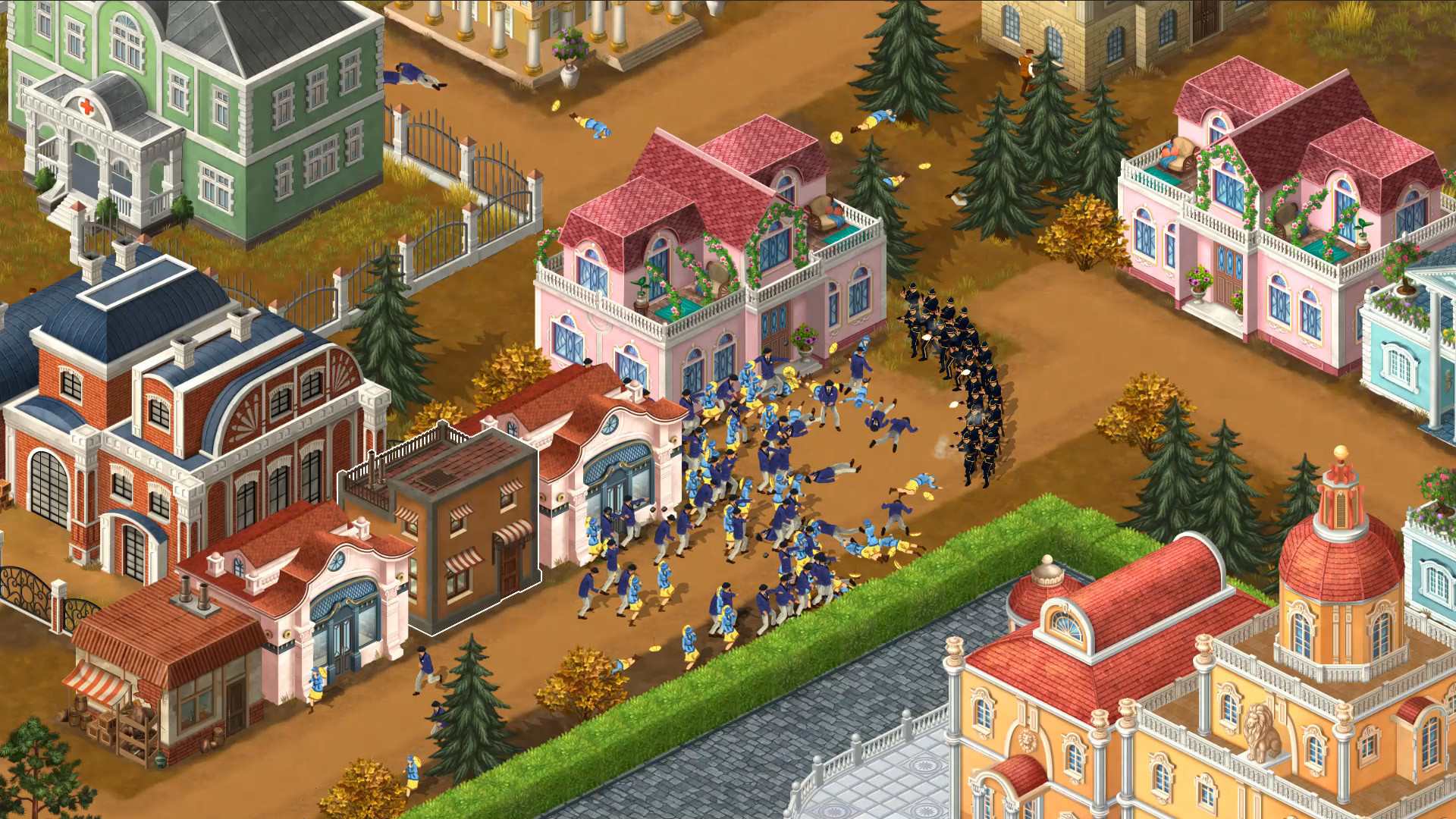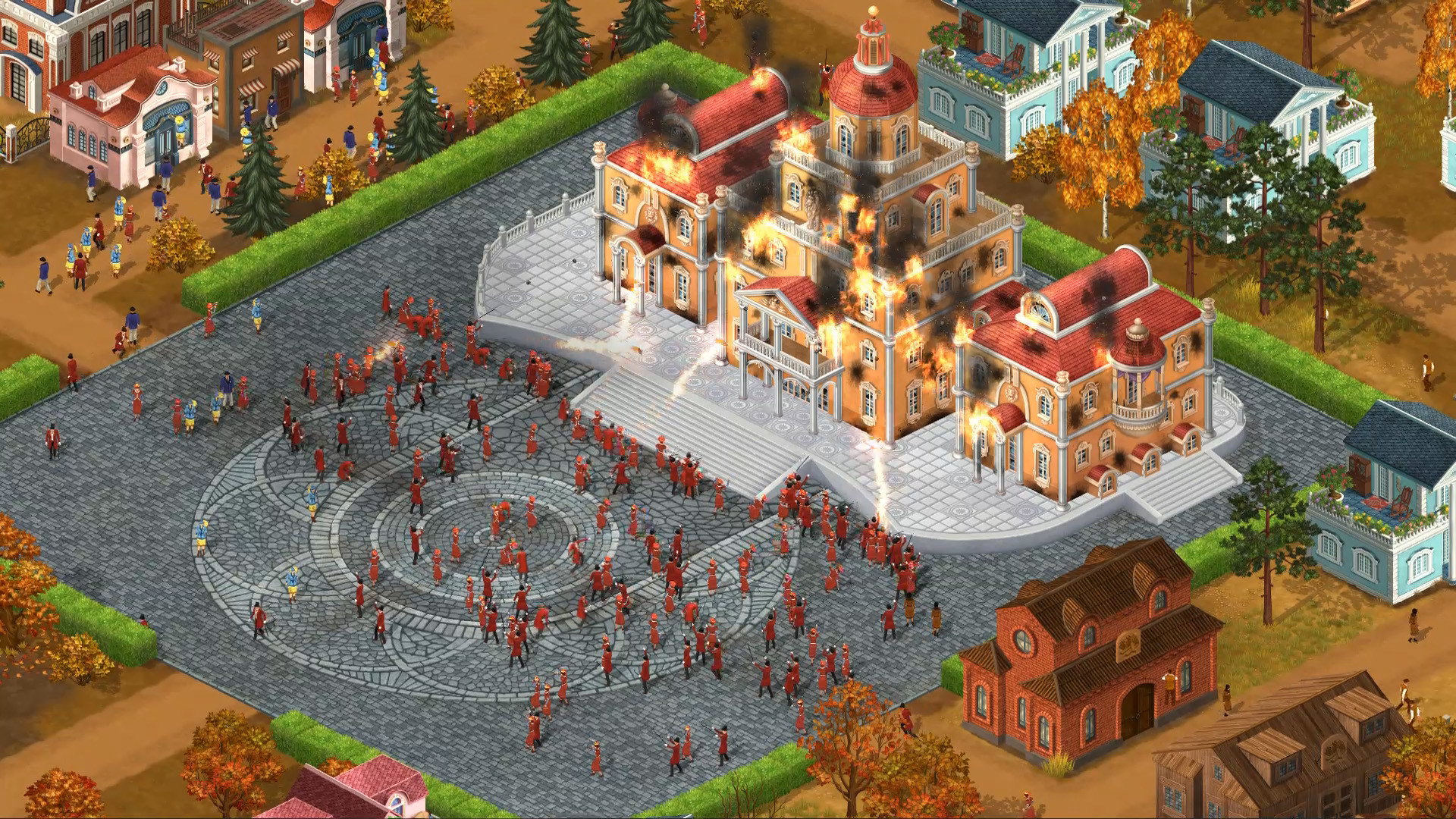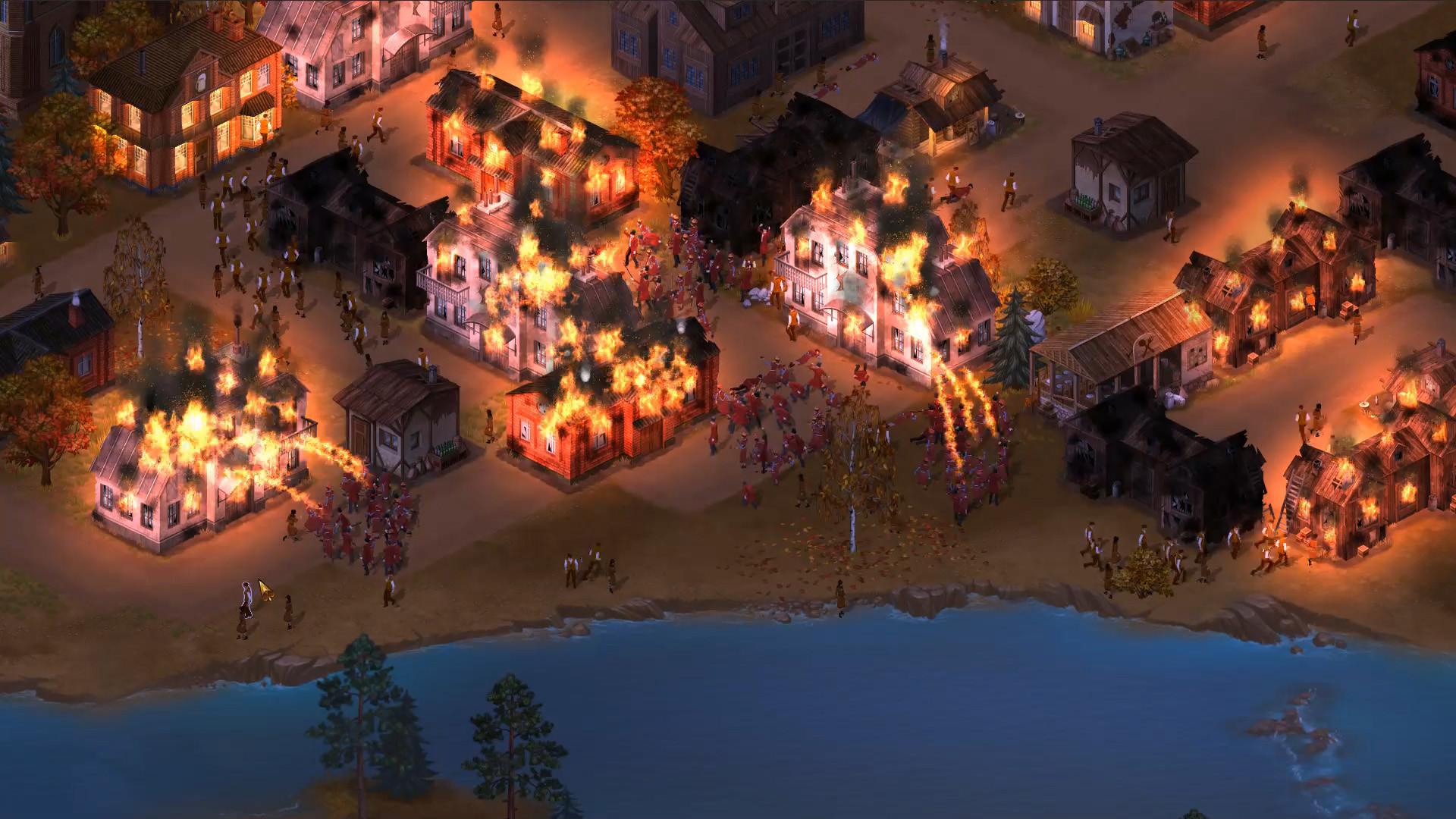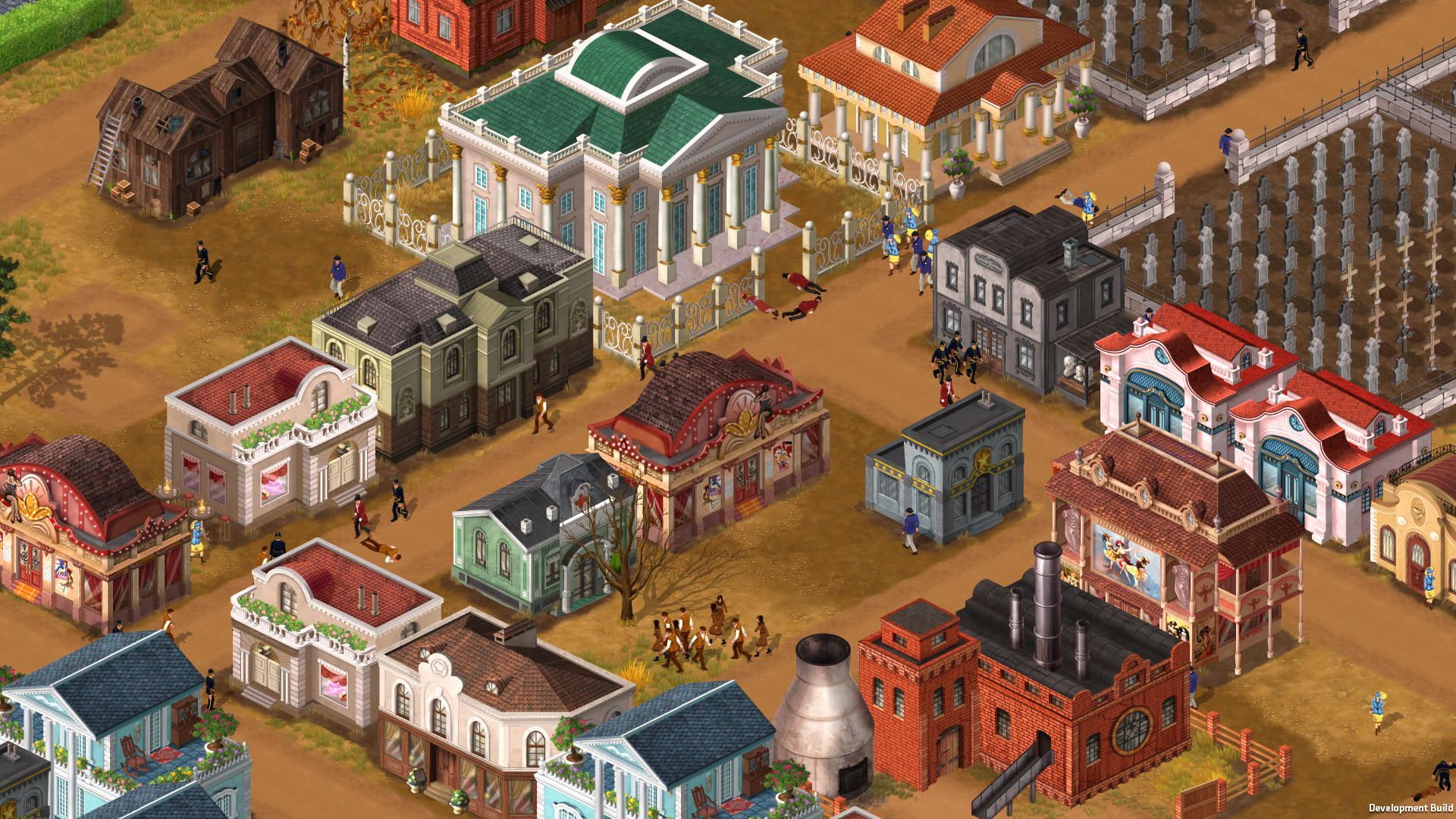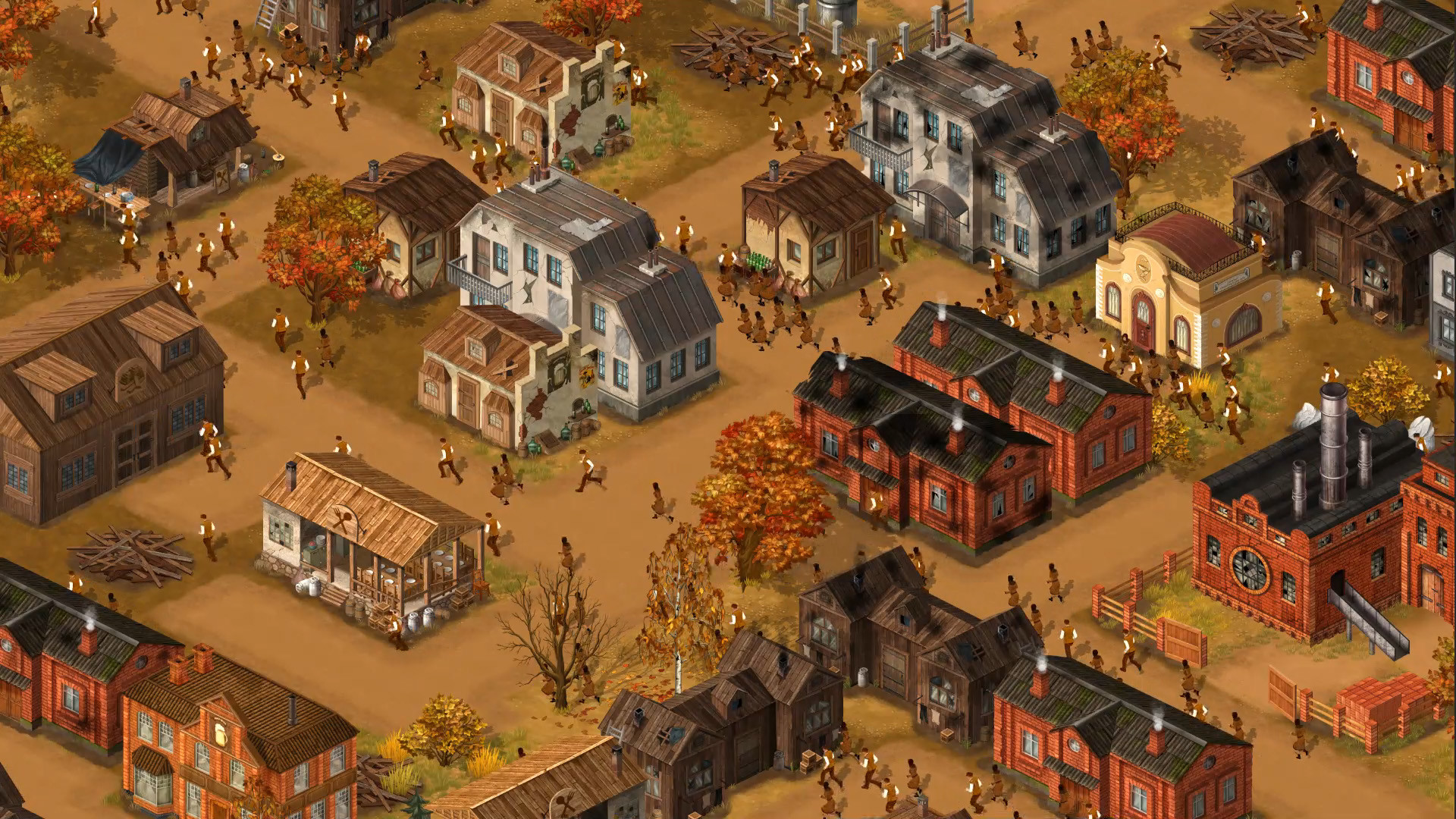
Kapital: Sparks of Revolution is a sandbox city-builder focused on society management. It is a game about crisis and permanent conflict in human society. You will run out of vital resources in times you need them the most. People will protest and riot despite your best efforts to help them. Not everyone will survive.
You’ll have to run a city with limited resources. To balance between people's needs and city development. To deal with angry crowds on the streets. You are the one to shape the future of your people. Just remember - there is no way to make everyone happy.


The population of your city consists of 3 classes: nobles, bourgeois and workers. Each class has a unique role in the city economy. Nobles serve as officials and policemen, bourgeois pay taxes while workers provide the labor force. Their vision of the future is very different and they are ready to fight for it.

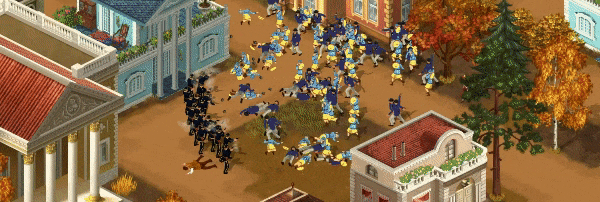
Running the city is not an easy task. Your resources are limited while people’s demands are high. You have to decide who will get food and shelter first. Be prepared to face new threats on a regular basis. Epidemics, accidents, sabotages, hostage situations - the city will fall apart unless you make a difference.


People whose needs go unsatisfied will hold a grudge against your rule. Some of them will become dissidents and radicals. They will form secret societies to overthrow you. Protests on the streets will turn into massacres and riots. You have to make a tough choice of which class to support and which to suppress.


You will research new technologies and adopt new laws to improve the lives of your citizens. You will fight crime, tackle corruption and maintain order on the streets. As a ruler of the city, you have the ultimate power to shape the future of your society. The question is how far will you go to reach that goal?

Hello, mayors! Lapovich Team here!
The world is not fair. Warehouses and shops are littered with food, while hungry and beggars stalk the streets nearby. Food production itself doesn't lead to an increase in well-being. It all depends on the distribution of the produced resources. Some will get the cream, while others will only crumble from the master's table. And this state of affairs doesn't surprise anyone. Human society is heterogeneous and hierarchical. How about creating an economic strategy game focused on the interaction between economy and social structure? This is how we came up with the idea of creating Kapital: Sparks of Revolution .
The action takes place in a European state during the early 20th century. The Great War has ended, leaving behind smoking ruins and shattered lives. You are the newly elected mayor of the destroyed city. Your goal is to restore the destroyed infrastructure, improve the economy, and provide residents with a decent life. However, the population in your town consists of 3 classes: nobles, bourgeois, and workers. Each class has a unique role in the city economy. Their vision of the future is very different, and they are ready to fight for it. You are the one to make the right choice.

Today's dev blog is about the game's economic model. At first, we wanted to create a highly detailed, realistic economy where the wealth of each citizen could dynamically change depending on the player's actions. In the first prototype, every citizen could earn and spend money during the day. Each person could get rich or become a beggar, while his needs depended on his social status. However, the system with so many details turned out to be unmanageable. The requirements of hundreds of residents need to be monitored in real-time. However, Kapital's main feature was the class struggle. Instead of overloading the game with statistics screens, we abandoned microeconomics.
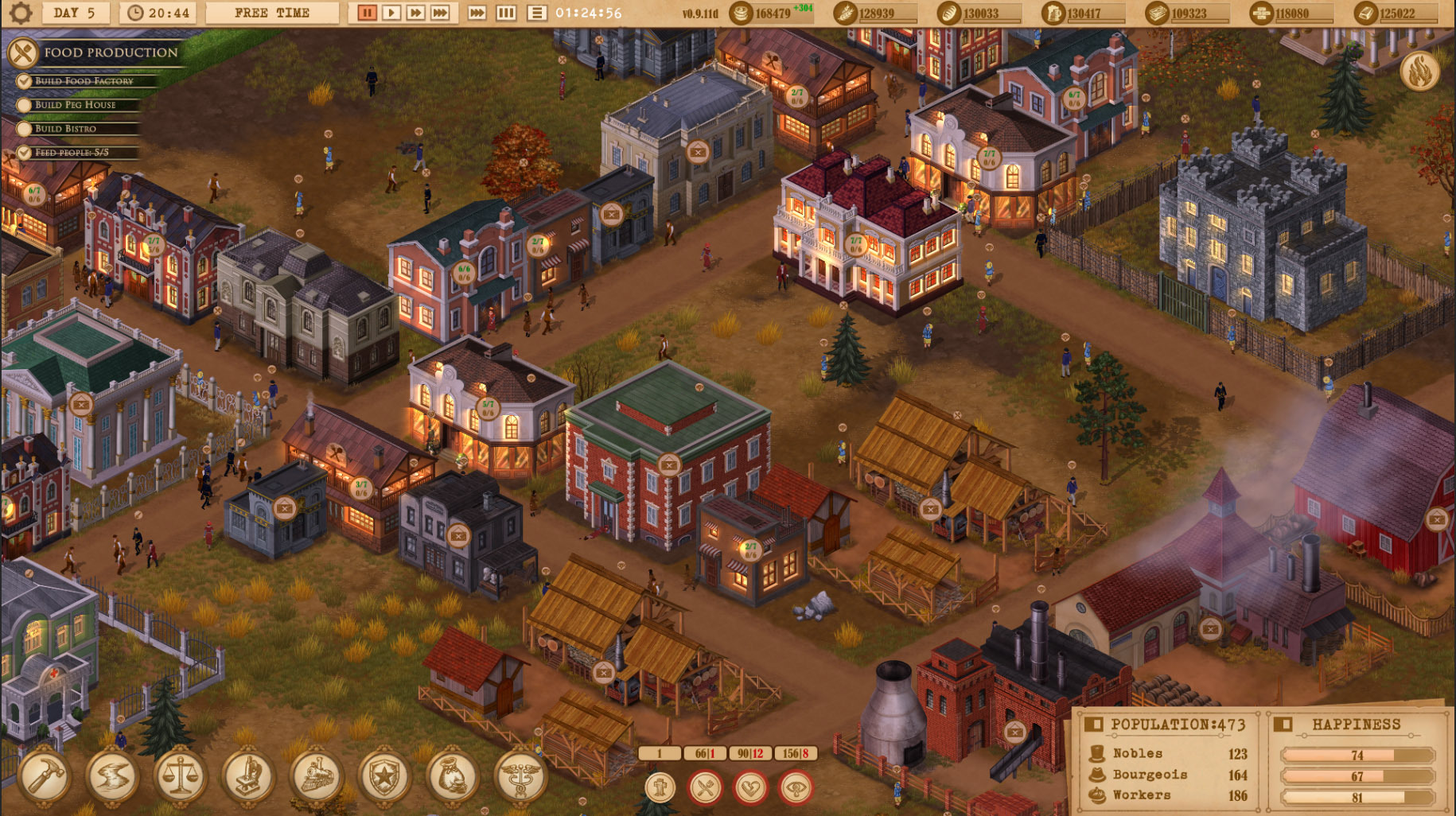
This decision proved to be a good one. The new prototype with a simplified economy was met with positive feedback from players. Although the workers stopped receiving daily salaries, the player still needs to pay maintenance costs for plants and public buildings. This requires a lot of gold. Gold became the bloodstream of the economy. Without it, the economy immediately starts to stagger. Plants stop working, food shortage follows, and soon crowds of angry citizens soon attack the palace.

The scale of the entire economy depends on the amount of gold available to the player during the work shift. And the primary source of gold is the people themselves. Firstly, the bourgeois class pays taxes. Secondly, every citizen generates gold while visiting a canteen or pub. The more citizens you have - the more gold you get! More gold means a larger economy and higher people's prosperity. The only problem is that all classes want a comfortable life here and now. They demand homes, food, entertainment, and medical care. They don't agree to live on a shoestring while the player is busy building an effective economy. They go out on the streets, gather in crowds, and storm the palace. At some point, crime, class strife, and conspiracies appear - and we get an explosive Molotov cocktail, in the flame of which a new social order is born!

Running a city with limited resources is not an easy task. People's demands are high. Some will get a daily ration, while others will remain hungry and angry at the government. With time discontented people will become desperate and attack other more fortunate citizens. To survive, you need to balance three main aspects: developing the economy, satisfying people's needs, and fighting radicals. Without proper management, the city will fall apart and become a mass grave. The fate of the entire nation is in your hands.
Just remember - there is no way to make everyone happy.
Wishlist now , the revolution is coming!
Follow us on Twitter
Join us on Reddit

Minimum Setup
- Processor: 3.2 GHz Dual Core ProcessorMemory: 4 GB RAM
- Memory: 4 GB RAM
- Graphics: GeForce GTX 660. Radeon R7 370 or equivalent with 2 GB of video RAM
- Storage: 4 GB available space
[ 6359 ]
[ 3675 ]
[ 2899 ]

